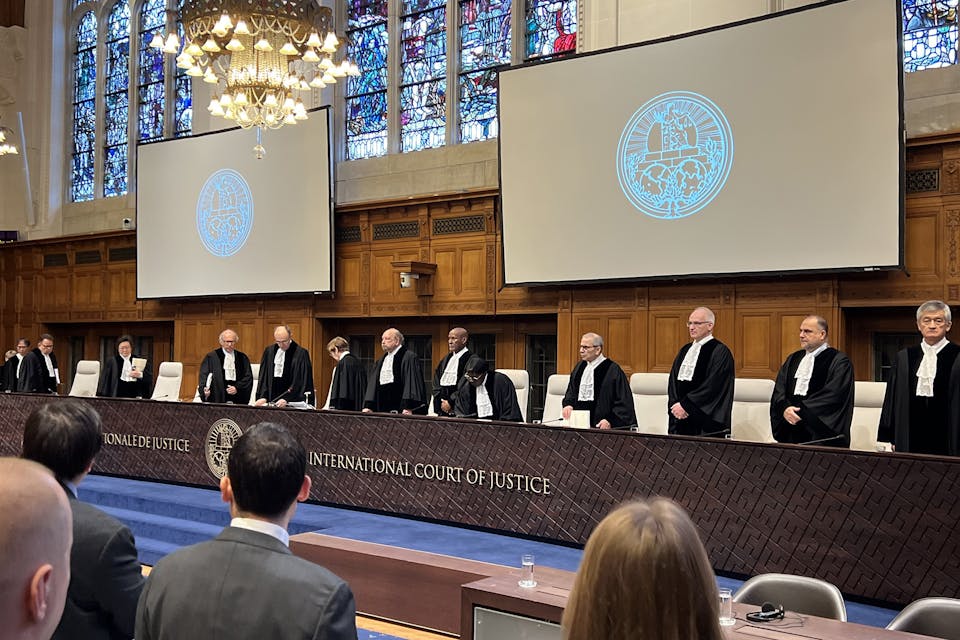
February 1, 2024
The Linguistically Challenged International Court of Justice
It is apparently too much to expect fifteen expert jurists to understand how human language is commonly used.
The International Court of Justice’s January 19 decision that found, by a vote of 15-2, accusations of genocide against Israel sufficiently “plausible” to warrant a thorough investigation is one more hardly needed bit of evidence of how foolish and detached from reality supposedly intelligent legal minds can be. The fact that, in rendering their 27-page verdict, the judges did not once refer to the lengthy arguments presented to them in Israel’s defense says all that needs to be said about the level of their deliberations.
Nowhere was this level demonstrably lower than in paragraphs 51-53 of the Court’s decision, which dealt with the allegedly “genocidal and dehumanizing rhetoric coming from senior Israeli officials” in regard to the war in Gaza. Three examples of such rhetoric were actually cited by the court, all in Paragraph 52. Let’s take a look at them.
One of these was a statement by Yisrael Katz, Israel’s minister of energy and infrastructure, in which he was quoted as having posted on X (formerly Twitter) on October 13: “We will fight the terrorist organization Hamas and destroy it. All the civilian population in Gaza is ordered to leave immediately. We will win. They will not receive a drop of water or a single battery until they leave the world.”